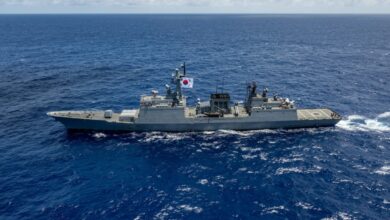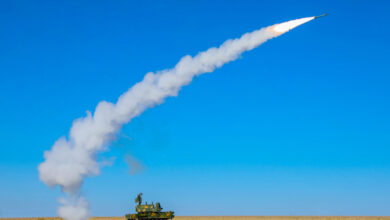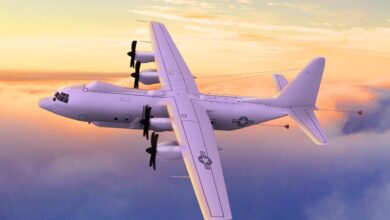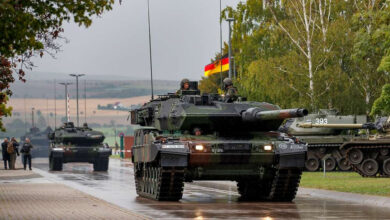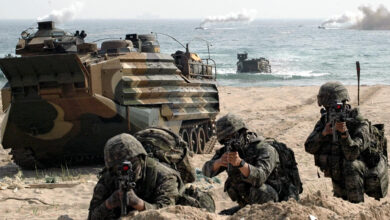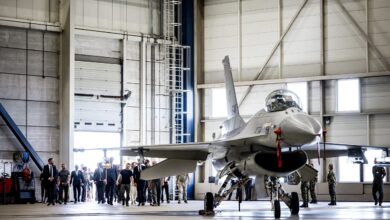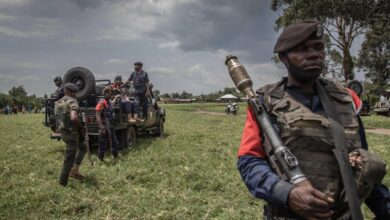What South Korea’s New President Means for Security on the Peninsula
SEOUL, SOUTH KOREA – Earlier this month, conservative lawyer Yoon Seok-youl of the People Power Party was elected president of South Korea. Yoon emerged victorious in a hotly contested race that saw him prevail over his Democratic Party rival by less than one percentage point.
Domestically, Yoon’s victory represents a sea change for South Korean conservatives who had struggled politically since the impeachment of former President Park Geun-hye in 2017.
Internationally, a Yoon Seok-youl administration may have lasting consequences, especially regarding security on the Korean Peninsula.
How Will Yoon Approach North Korea?
Yoon, who has never held elected office, lacks experience in foreign affairs. However, the president-elect is expected to surround himself with a wealth of foreign policy experts that have served in previous conservative administrations.
Given the track record of former conservative presidents, it’s safe to assume that Yoon will take a more hawkish stance on North Korea.
Unlike President Moon, who favored dialogue with Pyongyang, Yoon will not push for an end-of-war declaration before the process of denuclearization.
James Fretwell, an analyst for NK News, told The Defense Post that Yoon “will only allow economic assistance to North Korea after it takes ‘substantial steps’ towards denuclearization.”
He added that Yoon has referred to any “end-of-war agreement with a nuclear-armed Kim Jong-un as basically just paper and ink.”

For its part, Pyongyang has yet to issue an official response to the results of the South’s election.
The state-run Rodong Sinmum newspaper published a one-sentence article that only read “Yoon Seok-youl was elected as president by a narrow margin during the 20th presidential election held…on March 9.”
Issue of THAAD
It is also expected that Yoon will be receptive to more Terminal High Altitude Area Defense (THAAD) missile deployments in South Korea. The Lockheed Martin-developed anti-ballistic missile system is designed to shoot down missiles as they re-enter the atmosphere. The THAAD was first introduced to South Korea in 2017 amid much criticism, especially from China.
Kim Sung-han, a professor at Korea University advising Yoon on foreign policy, said during an interview with Reuters in late February that the president-elect plans to buy an additional THAAD missile system from the United States.
Kim admitted doing so would likely provoke additional weapons testing from the North but pointed out that his team “aims to devise a roadmap with significant and swift benefits for Pyongyang if it takes concrete actions to denuclearize.”
He further explained that the potential new THAAD battery would be deployed close to the capital of Seoul, along with the existing six sets located in the southeastern part of the country.

How Will China React?
Analyst Fretwell told The Defense Post that China was probably disappointed with Yoon’s victory and “will likely feel betrayed if South Korea deploys additional THAAD batteries.”
In 2017, Beijing agreed to end economic sanctions against Seoul after THAAD’s initial deployment in return for the so-called three noes: no additional THAAD deployment, no participation in a US missile defense network, and no trilateral military alliance with the US and Japan.
Yoon has said that the three noes undermine South Korea’s security, and he will not compromise on his country’s core interests.
Another THAAD installation will likely result in a fresh round of economic retaliation from Beijing, which has argued that a large chunk of its territory falls under THAAD’s radar. The radar could potentially be used to track China’s own missile systems.
However, Yoon will have little appetite to appease Beijing, as South Koreans appear increasingly wary over China’s growing influence in the world. In 2015, just 37 percent of South Koreans had a negative view of China, but by 2020, that number skyrocketed to more than 75 percent.
Despite growing anti-Chinese sentiments in South Korea, some believe that Yoon must be cautious.
Robert Koehler, a long-time journalist based in South Korea, told The Defense Post that “given Korea’s close economic ties with China – and the role China plays in the North Korean nuclear negotiations and broader Korean Peninsula issues – Yoon will need to walk a tightrope.”
Closer Ties With Washington
While South Korea’s ties with China may become more strained, the relationship between Seoul and Washington will likely deepen. During the presidential campaign, one of Yoon’s main foreign policy pledges was to enhance the alliance with the United States.
To meet this goal, Yoon voiced a willingness to resume large-scale military exercises with the US, which were suspended in 2018 and replaced with computer simulations after the Trump and Moon administrations described the drills as an obstacle to peace talks with North Korea.
Previous field exercises had included around 11,500 American troops and 290,000 South Korean soldiers operating on land, air, and sea.
Soldiers from Thailand, South Korea and the United States, backed by amphibious vehicles, storm a beach in Sattahip, Thailand as part of a military exercise.
For more videos, head here: https://t.co/hhDQuQ1top pic.twitter.com/Ey6po96NCt
— Sky News (@SkyNews) February 16, 2019
If American and South Korean troops re-engage in large-scale drills, experts expect a response from the North, which has been ramping up its missile tests in recent weeks.
On March 15, the US military said it had intensified air defense drills in South Korea and conducted an aircraft carrier exercise in the Yellow Sea after Pyongyang tested a new long-range missile. So far this year, North Korea has fired 13 missiles in nine rounds of launches.
With Yoon set to take office in May, Pyongyang could conduct more weapons testing before then to test the resolve of South Korea’s new president.



